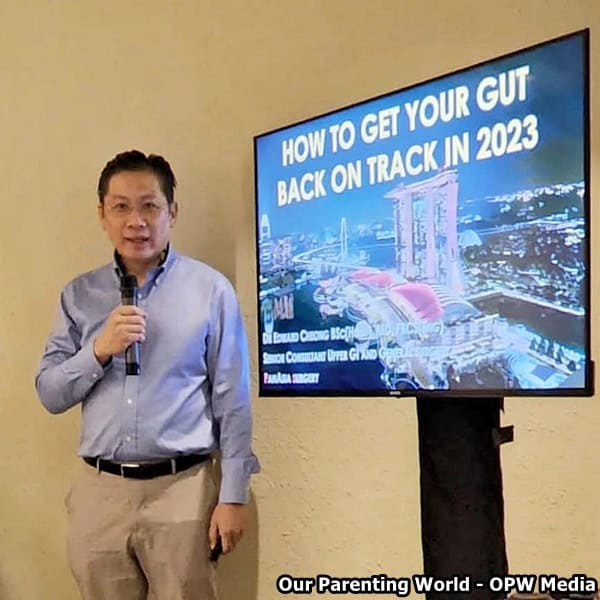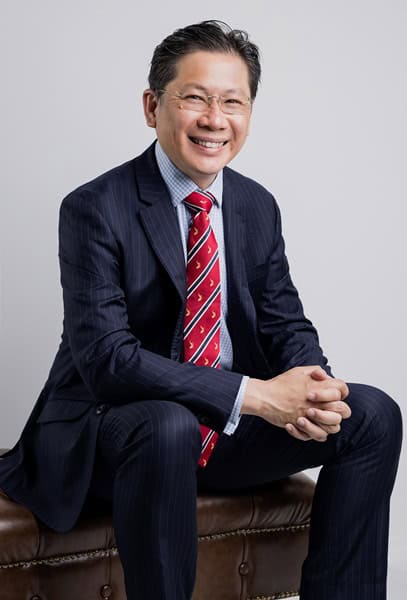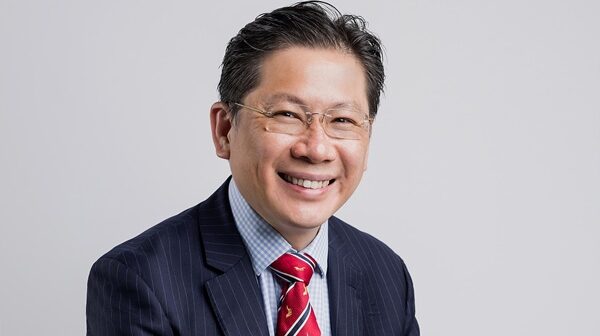PanAsia Surgery Group held a talk on gut health recently by Dr Edward Cheong, specialising in gastrointestinal surgery.
Gut health refers to the overall health and balance of the digestive system, which includes the stomach, small and large intestines, liver, and pancreas. It is essential for proper digestion, absorption of nutrients, and elimination of waste. The gut is also home to trillions of bacteria that form a complex ecosystem known as the gut microbiome. Maintaining a healthy gut microbiome is crucial for optimal immune function, mental health, and overall well-being. Poor gut health has been linked to numerous health conditions, including obesity, autoimmune disorders, depression, and irritable bowel syndrome. A balanced diet, regular exercise, and stress management are key to maintaining gut health.

Dr Edward Cheong is a Consultant Gastrointestinal Surgeon who specialises in Endoscopy and Minimally Invasive Surgery of the esophagus and stomach. He joined PanAsia Surgery in August 2022. At the talk, Dr Cheong shared about the updates on stomach issues, new industry developments, recent treatments and how to keep our digestive system churning right for 2023 and beyond. We speak to Dr Edward Cheong to find out more about gut health and other medical issues, read on to find out more.
Interview with Dr Edward Cheong, Consultant Gastrointestinal Surgeon, PanAsia Surgery Group
1) What inspired you to become a surgeon?
Dr Edward Cheong: I have always wanted to be a doctor. My mentors (Senior surgeons who trained me) were simply world class surgeons that helped change the life of so many cancer patients.
“Good people do things for other people – That’s it and The End” (You don’t look for any physical return/ reward).
2) How important is gut health to overall health, and what are some of the key factors that can affect gut health?
Dr Edward Cheong: Gut health is very important to our overall health which includes our physical and mental health. Gut health is also affected by our sleep and rest. They all interact to play a vital role in our physical and mental health.
3) In our Singaporean diet which consists of a lot of hawker food, how would you advise what to eat to get good gut health?
Dr Edward Cheong: From Monday to Friday, eat and drink healthily (avoid processed meat/food, less salt, more whole fruits/vegetables, nuts, and fresh white meat e.g., fish / chicken). Enjoy yourself on the weekend.
4) What is your opinion of natural probiotics like kimchi and yogurt vs probiotics purchased from the pharmacies? Is one group better than the other?
Dr Edward Cheong: Natural probiotics are generally all very good. Take the ones that you like and that suit you. Try dairy free ones.
5) There are more reports of younger adults having gastrointestinal cancers today. Is this related to poor gut health?
Dr Edward Cheong: Yes, a westernised diet and behavior within the society.
6) What do you think are the most common gastrointestinal issues that require surgery? How do you determine if a patient is a candidate for gastrointestinal surgery?
Dr Edward Cheong: Cancer in the colon and rectum, and Cancer of the stomach and esophagus.
The physical fitness of the patient is key – if they can walk up 2 floors of a building, they are fit. For cancer surgery, the stage of the cancer (usually stage 1 to 3; stage 4 is too advanced).
7) What type of preparation does your patient need before surgery?
Dr Edward Cheong: Preparation for a big operation is key to success – stop smoking/ alcohol; eat healthy food; daily exercises e.g., walking 30 minutes twice a day.
8) How do you ensure patient safety during a gastrointestinal surgery and manage pain and discomfort for your patients after surgery?
Dr Edward Cheong: Patient safety is a team effort, and all good teams need a good leader; prepare the surgery carefully the day before, anticipate any difficult areas, be ready to ask for help (we always operate on all big cases together with 2 senior consultants which is a win – win situation, it helps the patient and surgeons; there is a WHO checklist at the beginning and end of the case); sleep early the night before. Pain and discomfort after surgery is managed by preparing the patient before surgery to set expectations; giving pre-emptive analgesia before the incision; giving appropriate and simple analgesia post-surgery.
9) What are some of the most challenging cases you’ve worked on, and how did you approach them?
Dr Edward Cheong: Long and challenging operations e.g., emergency cases need careful preparation by looking at the patient and their medical history and fitness, looking at their radiology (e.g., CT scans), formulating a plan A and B, discussing and operating with a senior colleague.
10) How do you communicate with your patients and their families during the treatment process including options for surgery?
Dr Edward Cheong: This is best done together with the patient and family in the clinic or at the ward, before the operation, answering their questions, giving the pros and cons of the surgery, explaining the possible complication(s), and managing their expectations.
11) What are the recent treatments and the latest advancements in gastrointestinal surgery?
Dr Edward Cheong: The key-hole or minimally invasive surgery; and now the rise of Robotic Surgery. GI Cancer surgery has recently improved with the use of targeted therapy before surgery e.g., immunotherapy that targets only the cancer without toxic side-effects to the rest of the body.
12) Can you explain what Asian Flush is, and what causes it?
Dr Edward Cheong: Asian flush is the red warm glow / flush effect seen on the skin of the face, body and limbs of those affected after consuming alcohol. This is due to the accumulation of the toxic substance in the body called acetaldehyde. This is caused by an inherited genetic mutation of the enzyme aldehyde dehydrogenase 2 (ALDH2) which normally metabolises and breakdowns acetaldehyde to acetate which is a non-toxic substance. This enzyme mutation affects 35-40% of East Asians. They have a ridiculously high risk of developing esophageal cancer (squamous cell carcinoma), from 10 – 80 x higher risk compared to the normal population, depending on how much alcohol is consumed.
13) Are there any effective treatments or remedies for Asian Flush?
Dr Edward Cheong: Not yet for humans. Genetic experiments on mice using genetically engineered viral DNA can help restore the mutation. This has not been proven in human. Histamine blockers e.g., Pepcid can only reduce the red glowing effects but it does not change the risk of esophageal cancer.

14) Lastly, is there anything else you’d like to add or any advice you’d like to give to our readers about setting health goals for the year and beyond?
Dr Edward Cheong: YES!!! Our mental health affects our gut health and vice versa. Sleep is your superpower – don’t under-estimate it, and do it well. It affects your immune system, gut health and mental health.
Patients can find Dr Edward Cheong at PanAsia Surgery located at Mt Elizabeth (Orchard & Novena) and Parkway East Hospital.




